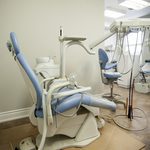We cover the use of prescription opioids quite often, due to the fact of both over prescribing and over reliance on drugs like oxycodone has resulted in an unprecedented epidemic in this country. While prescription opioids take the prize as being the most effective form of pain management, the risks of prescribing such drugs often times outweighs the benefits.
Now, over a decade and a half into this insidious opioid crisis, both health experts and lawmakers continue to fight an uphill battle in an attempt to stem the tide. That is not to say that strides have not been made, but in all reality it is still quite easy to go to a doctor and walk out with a prescription. In fact, many doctors are resistant to guidelines and recommendations from national agencies, such as the Centers for Disease Control and Prevention (CDC).
Hopefully, in time, more and more doctors will come to realize that the future of this epidemic is in their hands. Setting over-prescribing aside, it is worth pointing out that many doctors fail to mention the dangers associated with opioid analgesics before handing their patients prescriptions. Patients often think that because a drug came from a doctor, it must be safe. It goes without saying that prescription opioids are the furthest thing from safe, as is evident by the fact that over 2 million Americans abuse that class of drugs.
When discussing opioid narcotics, most people think of primary care physicians, pain management specialists and emergency department doctors; however, there is another field of medicine that is often overlooked—that of dentistry. Anyone who has ever had a toothache or needed to have their wisdom teeth pulled, knows all too well that the mouth can be a great source of pain. It is not uncommon for dentist to use opioids for surgery or to write prescriptions for Percocet post-op.
In fact, a Harvard research team found that dentists are one of the top prescribers of prescription opioids, NBC News reports. What’s more a number of people with prescription opioid use disorders began their use with a prescription written by their dentist. It is vital that dentistry students, and medical students alike, be given specific training about safe prescribing practices and how to inform future patients about the risks that come with opioid use.
At the University of Pittsburgh School of Dental Medicine, dental students are being taught to explain to their patients how to take opioids as safely as possible, according to the article. Writing a two-week prescription that is not refillable is a measure being taught to the students.
“I think we find today that prescribing needs to include both education as well as dispensing,” said Dr. Paul Moore, professor of pharmacology and anesthesiology at the University of Pittsburgh School of Dental Medicine. “We teach all of our students here if you’re going to write a prescription for an opioid it is important to follow our checklist that includes the kinds of information that you need to provide that patient.”
Please take a moment to watch a short video on the subject below:
If you are having trouble viewing the video, you can see it here.








